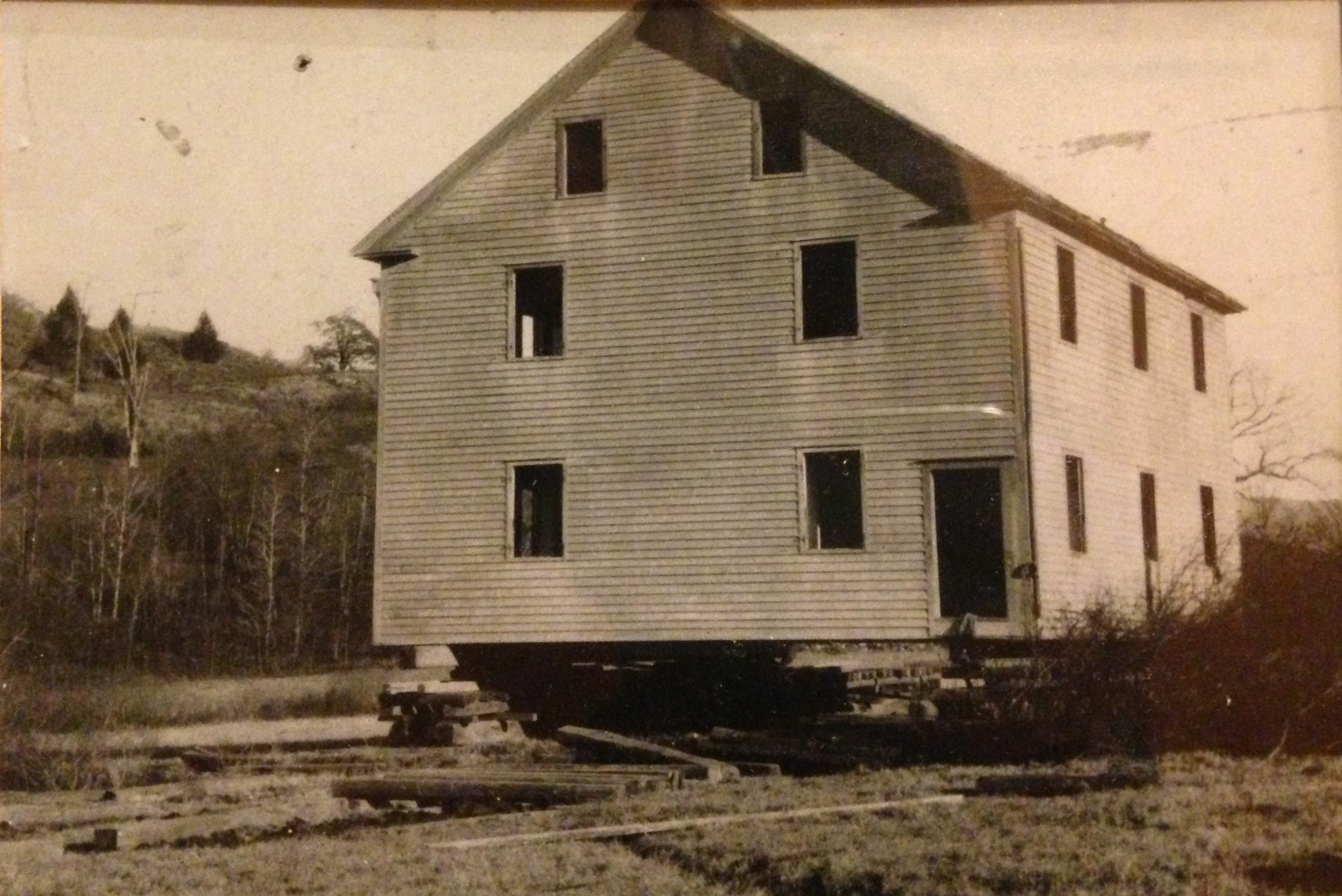This Old House
The house in my grandfather's day
Lately, I've been thinking a lot about the Shaker meeting house my grandfather bought in the 1930s. I know--I've mentioned it at length in an earlier post. But I've been thinking about what really happened in there before it became a home. After all, it's not like people sat around gossiping, bouncing babies on their knees, or churning butter. It was a place of worship and, as the spiritual center of a small Shaker community, its gallery was often filled with the sounds of believers singing and dancing and channeling the spirits of freed slaves, or George Washington, or an "Arab from faraway deserts." The Shakers who congregated there whirled and fell to the floor in fits of wonder and self-abasement before Mother. (That's Mother Ann Lee to you and me, the exalted founder of the United Society of Believers in Christ's Second Appearing, otherwise known as the Shakers.) They really believed.
Shakers dancing in Meeting
It's hard to square that kind of activity with what goes on now. Boisterous family dinners, barking dogs (lots of dogs), generation after generation of babies laughing and adults drinking and kids arguing and glasses being raised and walls being torn down, then rebuilt, then torn down again. And Elton John. It's really hard to square the whole Shaker thing with him.
The house (before my family owned it), up on blocks and ready to be moved
Perhaps it would help if I remembered that the house no longer occupies the site it did when miracles were so thick on the ground. Sometime in the 1920s, it was raised up onto blocks and rollers, and then pulled by one winch and a single draft horse over frozen ground to where it sits today, a mile or so down the road. All this moving (and shaking) was done before my grandfather bought the place, as was the extensive renovation that saw the addition of a central stairwell and fireplace--complete with fake bread oven--in the middle of the huge open meeting space. Then there was a second wing attached. Then a third. And so on.
Local Shaker settlement (date unknown)
There are still pegs on all the walls surrounding the main room so that, back in the day, hats and cloaks and even chairs could be hung up out of the way before the singing and dancing began in earnest. There is even a line cut through the floorboards extending the entire length of the room so that the brethren could sit to one side, the sisters to the other. It is straight and even and divides the room precisely in half. There are multiple doors for elders, sisters, brothers, and visiting guests from "the World." Everyone, it seems, had his or her own entrance to our house.
The outside of a typical meeting house
The inside of a typical meeting house
Staircases inside climbed up each of the gable ends--one set for the Elder Sisters, one for the Elder Brothers--leading up to separate rooms for working, receiving and sleeping. A local carpenter recently told my mother that he could tell that the roof had been raised at some point. This would explain a lot, because while the house now looks exactly the way we imagine Shaker buildings should look--like the red hotel pieces found in any Monopoly set--meeting houses typically sport a gambrel roof. That's the style in which most were built, with the interior beams of the gallery painted a celestial blue. Why? To signify Heaven, of course.
Until I began working in earnest on The Visionist, I never once thought about anything that might have happened in our house. Once or twice, I thought about what didn't happen--which is to say, sex. There was no carnal sinning under our roof for a good, long while. In fact, it's where everyone came to save their filthy souls, not to sully them further.
My family's house on a hill
In my family's house, there's no more "shaking of the dry bones," as Elder Rufus Bishop described one Sunday's enthusiastic worship session at the New Lebanon Church Family meeting. But now, on warm summer nights when I'm sitting alone on the doorstep out back and looking over the valley, I sometimes feel I can conjure the clamor of the old days. The sounds of feet stomping, the chant-like songs, the Visionists babbling their strange messages from the world beyond. I hear the fits of laughing that possessed believers for hours when they had "the laughing gift." The floorboards tremble with religious fervor. I'm middle-aged and thus perhaps more sensitive to the past now, its spirits so full of conviction. How could I have been so deaf and blind to them for all those decades?





